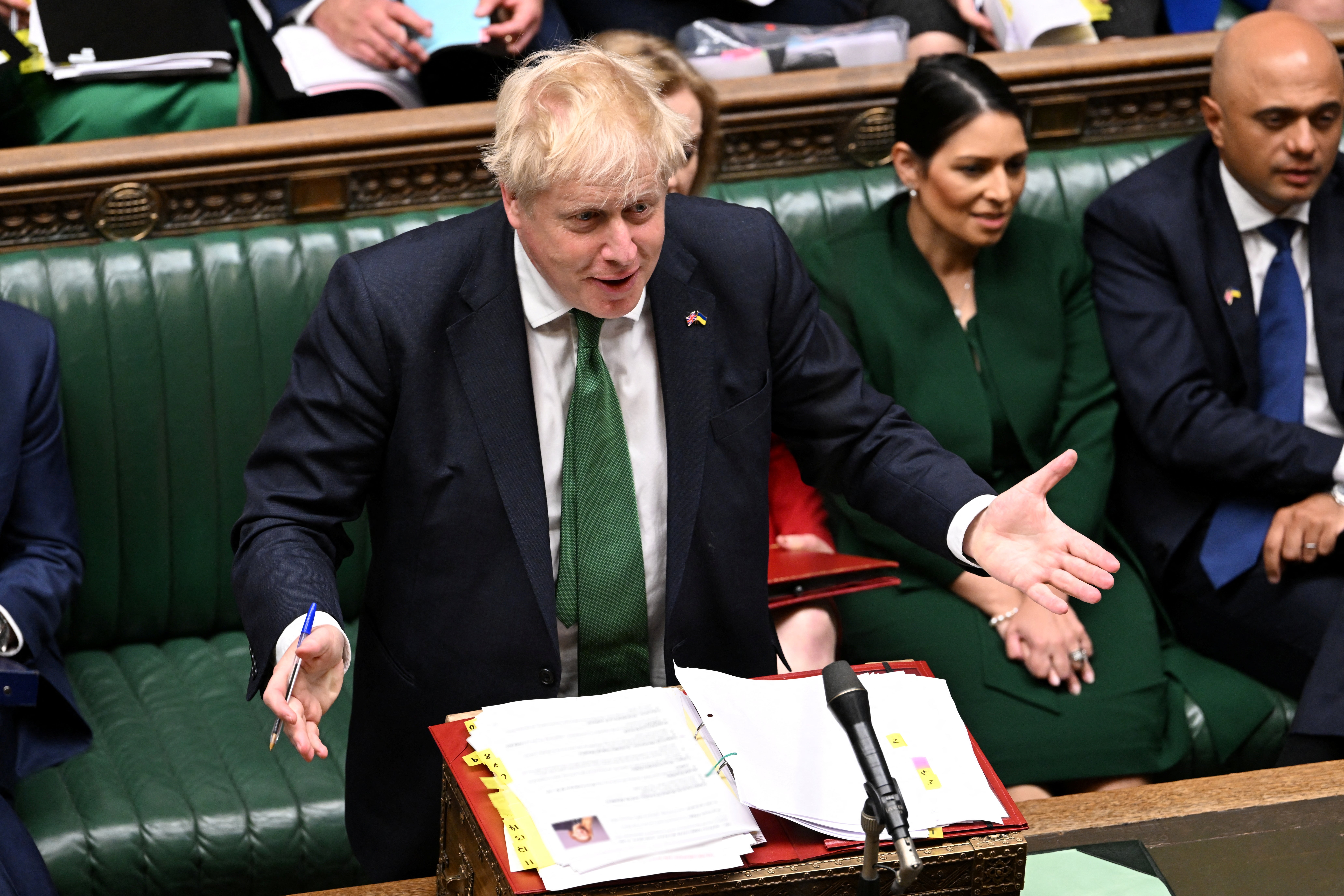Never mind the logic: Boris Johnson’s bizarre Blackpool speech
Instead of a single message, there was a slogan repeated several times and attached to a list of different subjects, writes John Rentoul


For most prime ministers and their teams of advisers, writing a speech is an arduous job. Decide the central message, work out the argument, negotiate the competing demands on the government and adjudicate between them.
Boris Johnson approaches the task differently. He puts everything in without any attempt to reconcile contradictions, and hopes it will hold together by delivering the words at speed, with energy and conviction. Instead of a single message, there was a slogan repeated several times and attached to a list of different subjects: “On your side.” And a policy, distantly related to the slogan, of letting people borrow against benefit income to buy homes.
Instead of an argument, he made several different arguments, any one of which could have been the spine of a speech, but all of which made for confusion.
Petrol is a bit pricey, the prime minister had noticed. Or, as he put it, “the spooling digits on the petrol pump” were scaring people. Six months ago, he said, he assumed that the laws of supply and demand would deal with the problem, but then Vladimir Putin invaded Ukraine and so the government decided that it had to do something to help people. That something was a 5p cut in petrol duty, which made no noticeable difference, but he has gone back to thinking the problem will sort itself out of its own accord. “Over time, the economic consequences of the war in Ukraine will abate,” he said.
After that false start, Johnson began the speech again, claiming to be a traditional social democrat: “When we protected the population during Covid, the package of help was massively progressive, in the sense that it went overwhelmingly to the most vulnerable households. We will do the same in the aftershocks of Covid.”
But wait. Inflation is a problem. So Johnson re-enacted the trauma of the 1970s Labour government in a few sentences. “When you face inflationary pressure, you can’t just spend your way out of it,” he said, echoing James Callaghan’s 1976 speech in which he told the Labour conference in that same seaside town: “We used to think that you could spend your way out of a recession… I tell you in all candour that that option no longer exists.”
Johnson, who had a few months ago hailed labour shortages as one of the benefits of Brexit because it would bid up wages, now declared: “We cannot fix the increase in the cost of living just by increasing wages to match the surge in prices.”
To keep up to speed with all the latest opinions and comment, sign up to our free weekly Voices Dispatches newsletter by clicking here
This part of the speech read as if Johnson had had a discussion with Rishi Sunak about what he wanted to do, in which the chancellor patiently explained why each idea wouldn’t work, and instead of deciding between the competing priorities, the prime minister decided to read out a transcript of their entire conversation and pretend it was a plan.
Let us increase public spending on infrastructure, crime, the Covid backlogs, social care, education and defence. “But it costs money. Prodigious sums. The overall burden of taxation is now very high – and sooner or later, and I would much rather it was sooner than later, that burden must come down.”
This high tax burden, Johnson said, was an “aberration caused in no small part by the fiscal meteorite of Covid”. So the time had come for the government to “continue to invest”, he said, but at the same time, to do the opposite. “Sometimes the best way that government can help is simply to get out of the way,” he said, having morphed from Harold Wilson to James Callaghan to Margaret Thatcher in a few short paragraphs.
“Getting out of the way” while being “on your side” turned out to mean an unwise scheme to use state benefits to subsidise a further burst of house price inflation. None of it made any sense, but at least most political journalists are writing about housing policy and not lockdown law-breaking or votes of confidence.



Join our commenting forum
Join thought-provoking conversations, follow other Independent readers and see their replies
Comments